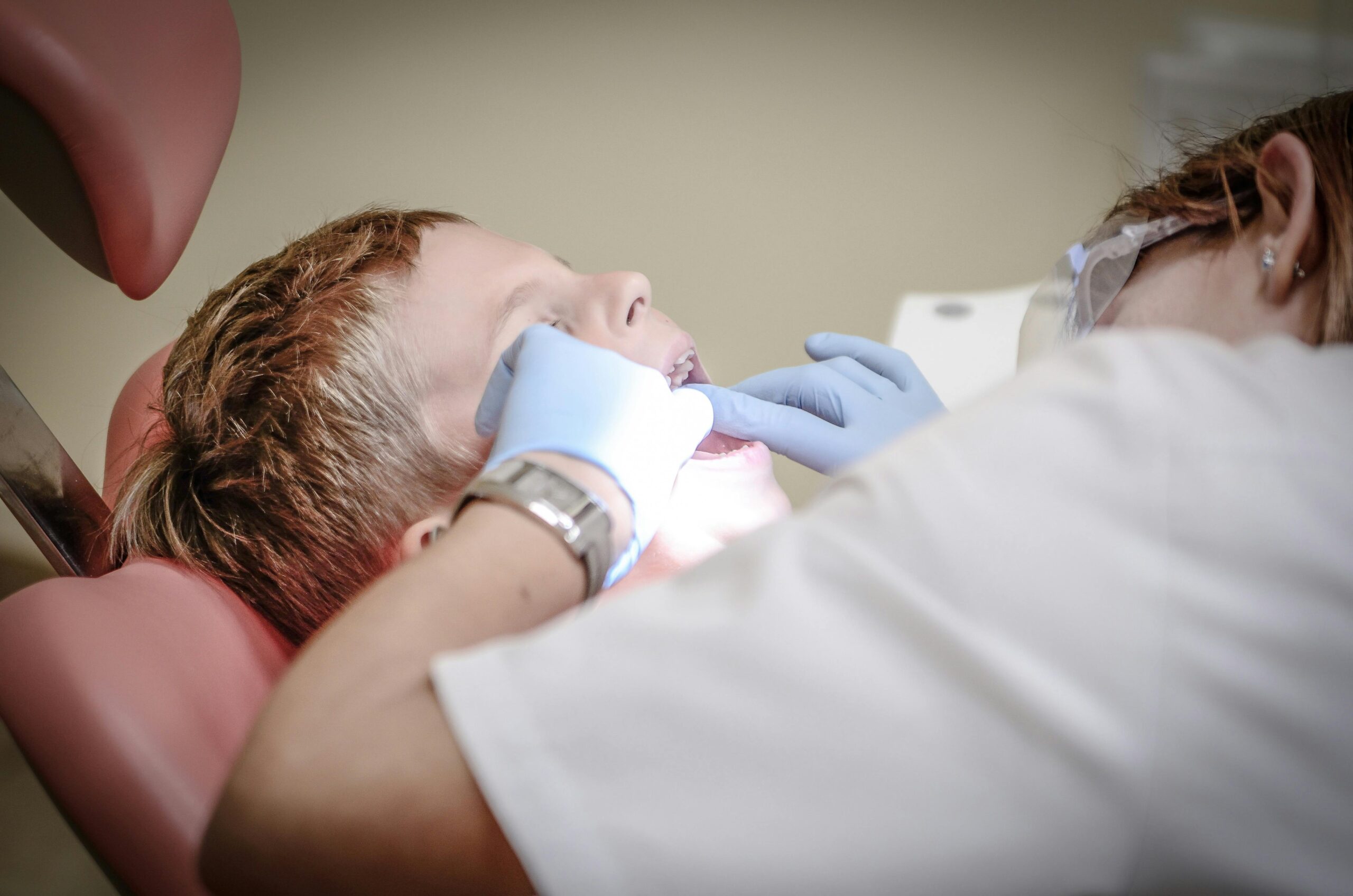How to become a Dentist: Complete Guide

Introduction
The dental industry is a vital part of healthcare, focused on diagnosing, preventing, and treating oral health issues. Dentists play a crucial role in maintaining patients’ oral hygiene, addressing problems such as cavities, gum disease, and tooth decay, and providing restorative and cosmetic treatments to improve smiles. If you are interested in pursuing a career in this essential and rewarding field, this complete guide will walk you through the steps to become a dentist, covering everything from educational requirements to necessary skills and career opportunities.
Who is Dentist and what do Dentist do?
A dentist is a healthcare professional who specializes in diagnosing, preventing, and treating diseases and conditions of the oral cavity. Dentists play a vital role in maintaining overall oral health by performing various procedures, such as cleanings, fillings, extractions, and restorative treatments. They also provide guidance on proper oral hygiene practices and work to prevent dental problems before they develop. Dentists may work in private practices, clinics, hospitals, or educational institutions, often collaborating with dental hygienists, dental assistants, and other healthcare professionals.
– Diagnose oral health issues: Examine patients’ teeth, gums, and other oral tissues to identify problems such as cavities, gum disease, and oral cancer.
– Preventive care: Perform cleanings, fluoride treatments, and sealant applications to prevent tooth decay and gum disease.
– Restorative treatments: Treat cavities with fillings, perform root canals, and place crowns and bridges to restore damaged teeth.
– Extractions: Remove decayed, damaged, or impacted teeth when necessary.
– Cosmetic procedures: Enhance the appearance of patients’ smiles through treatments like teeth whitening, veneers, and bonding.
– Oral surgery: Perform minor surgical procedures, such as biopsies, and refer patients to specialists for more complex surgeries.
– Patient education: Advise patients on proper oral hygiene practices, diet, and preventive care to maintain oral health.
– Collaboration: Work with dental hygienists, dental assistants, and other healthcare professionals to provide comprehensive care.
– Administrative tasks: Manage practice operations, maintain patient records, and ensure compliance with health regulations.
– Continuing education: Stay updated on the latest advancements in dental techniques and technologies through ongoing education and professional development.
What are the educational qualifications required to become Dentist?
To become a dentist, one must complete several educational and training steps. Here are the detailed educational qualifications required:
- Bachelor’s Degree:
– Pre-Dental Coursework: While any major is acceptable, most aspiring dentists major in science-related fields such as biology, chemistry, or biochemistry. Essential pre-dental courses typically include biology, general chemistry, organic chemistry, physics, and mathematics.
– Undergraduate Degree: Completion of a bachelor’s degree from an accredited college or university, typically taking four years.
- Dental Admission Test (DAT):
– Preparation and Exam: Before applying to dental schools, students must take the Dental Admission Test (DAT). This standardized exam assesses knowledge in natural sciences, perceptual ability, reading comprehension, and quantitative reasoning.
- Dental School:
– Doctor of Dental Surgery (DDS) or Doctor of Dental Medicine (DMD): Acceptance into an accredited dental school program, which generally lasts four years. Both DDS and DMD degrees are equivalent and entail the same curriculum.
– Coursework: The first two years focus on basic sciences and preclinical coursework, including subjects such as anatomy, physiology, microbiology, and dental materials.
– Clinical Training: The final two years involve clinical rotations, where students gain hands-on experience treating patients under the supervision of licensed dentists.
4.Optional Advanced Education:
– Residency Programs: For those seeking specialization (e.g., orthodontics, oral surgery, pediatric dentistry), completion of an additional residency program is required. These programs can last from two to six years, depending on the specialty.
– Advanced Degrees: Some dentists may choose to pursue advanced degrees such as a Master of Science (MS) or a Doctor of Philosophy (PhD) in a related field.
- Continuing Education:
– Lifelong Learning: Dentists must engage in continuing education to stay current with advancements in dental science, technology, and techniques. Most states require a certain number of continuing education hours for license renewal.
Overall, becoming a dentist requires a significant investment of time and effort, encompassing undergraduate education, dental school, licensure exams, and ongoing professional development.
Which licenses are required to become Dentist?
The licenses required to become a Dentist are:
– National Board Dental Examination (NBDE): Part I and Part II: These exams assess a dentist’s ability to understand fundamental dental concepts and clinical practices.
– Clinical Examination: After passing the NBDE, candidates must pass a regional or state clinical board examination, which typically involves performing procedures on patients.
– State Licensure: Each state has specific requirements, but most require passing both the NBDE and a clinical exam. Some states also require additional written or jurisprudence exams.
Where do Dentist work?
Dentists work in a variety of settings, primarily in private dental practices, where they provide a wide range of dental care services to patients. They can also be found working in hospitals, clinics, and community health centers, offering specialized dental treatments and emergency care. Some dentists choose to work in academic institutions, teaching dental students and conducting research. Additionally, dentists may work in government agencies or military settings, providing dental care to service members and their families. Overall, dentists have diverse opportunities to practice in different environments, catering to various patient needs and preferences.
How long does it take to become a Dentist?
Becoming a dentist typically takes about 8 years of education beyond high school. This includes completing a 4-year bachelor’s degree, followed by 4 years of dental school to earn a Doctor of Dental Surgery (DDS) or Doctor of Dental Medicine (DMD) degree. For those who choose to specialize in a particular area of dentistry, additional training through residency programs, which can take 2 to 6 more years, is required. Overall, the journey to becoming a dentist demands significant dedication and time commitment.
How much does a Dentist make in a year?
Dentists typically earn a substantial income, with annual salaries varying based on factors like location, experience, and type of practice. On average, dentists in the United States make around $160,000 per year. Those who own their private practices or specialize in fields such as orthodontics or oral surgery can earn significantly higher incomes, sometimes exceeding $200,000 annually. However, salaries can be lower for dentists working in public health or academic settings.
What hours do Dentist work?/ What are the work hours of Dentist?
Dentists generally work full-time, with typical office hours from 8 or 9 AM to 5 or 6 PM, Monday through Friday. Some dentists may offer evening or weekend appointments to accommodate their patients’ schedules. The exact hours can vary depending on the practice setting, location, and individual preferences. While most dentists have regular working hours, those in emergency dental clinics or hospitals might work on-call shifts to handle urgent dental issues.
What qualities must a Dentist have?
Qualities that are important for dentists include:
- Attention to Detail: Precision in diagnosing and treating dental issues.
- Manual Dexterity: Skill and steadiness in using dental tools and performing procedures.
- Communication Skills: Ability to clearly explain procedures and treatment plans to patients.
- Compassion and Empathy: Sensitivity to patients’ fears and concerns, providing reassurance and support.
- Critical Thinking: Analyzing symptoms and developing effective treatment plans.
- Patience: Managing long procedures and working with anxious or difficult patients.
- Problem-Solving Skills: Addressing unexpected issues during treatments and finding effective solutions.
- Business Acumen: Running a practice efficiently, managing staff, and handling financial aspects.
- Stamina: Physical endurance to perform lengthy procedures and stand for extended periods.
- Commitment to Learning: Staying updated with the latest dental techniques and technologies through continuing education.
What are some related jobs Dentist can have?
Related jobs that dentists can have include:
- Orthodontist: Specializes in diagnosing, preventing, and correcting misaligned teeth and jaws.
- Oral and Maxillofacial Surgeon: Performs surgeries on the mouth, jaws, and face to treat various conditions.
- Periodontist: Focuses on the prevention, diagnosis, and treatment of gum diseases and supporting structures of the teeth.
- Prosthodontist: Specializes in restoring and replacing teeth with prosthetics such as crowns, bridges, dentures, and implants.
- Endodontist: Expert in diagnosing and treating issues related to the dental pulp and root canals.
- Pediatric Dentist: Provides dental care for children from infancy through adolescence.
- Dental Hygienist: Works alongside dentists to provide preventive care, cleanings, and patient education.
- Dental Assistant: Supports dentists during procedures, manages patient care, and handles administrative tasks.
- Dental Laboratory Technician: Crafts dental prosthetics like crowns, bridges, and dentures based on dentists’ specifications.
- Dental Educator: Teaches dental students and conducts research in academic institutions.
- Public Health Dentist: Works to improve dental health at the community or population level, often within government or non-profit organizations.
- Researcher: Conducts studies to advance knowledge in dental science and develop new treatments and technologies.
Dentist Job Industry Challenges
The dental industry is experiencing several key trends and challenges. One significant trend is the growing adoption of advanced technologies, such as digital imaging, CAD/CAM systems, and laser dentistry, which enhance diagnostic accuracy and treatment efficiency. Another trend is the increasing demand for cosmetic dentistry and orthodontic services, driven by a desire for improved aesthetics. However, the industry faces challenges such as the high cost of dental education, leading to substantial student debt for new dentists. Additionally, access to dental care remains a concern, with disparities in availability and affordability affecting underserved populations. Dentists must also navigate the complexities of insurance reimbursements and stay current with evolving regulations and best practices.
How to build a professional network in the Dentist industry?
Building a professional network in the dentist industry involves actively engaging with colleagues, mentors, and industry professionals. Attend dental conferences, seminars, and workshops to connect with other dentists and exchange knowledge and experiences. Join professional organizations such as the American Dental Association (ADA) or local dental societies to access networking events, forums, and educational resources. Participate in continuing education courses and study clubs to stay updated on advancements in dentistry and meet fellow professionals. Additionally, volunteering for dental outreach programs or community events provides opportunities to network while giving back to the community. Utilize social media platforms like LinkedIn to connect with peers, share insights, and build professional relationships online.
Get a high paying Dentist job.
Ready to take your dentistry career to new heights and secure a high-paying job in the dental industry? Look no further than Pulivarthi Group. As a leading staffing agency specializing in dental placements, we connect talented dentists like you with top-tier employers offering competitive salaries and rewarding career opportunities. By signing up with Pulivarthi Group, you’ll gain access to our extensive network of dental practices and clinics actively seeking skilled professionals to join their teams. Whether you’re seeking positions in private practice, specialty clinics, or academic institutions, we’re here to help you find the perfect fit for your skills and expertise. Don’t settle for anything less than the best. Join Pulivarthi Group today and unlock the door to high-paying dentist jobs in the dynamic dental industry.
Related articles

Maximizing Productivity with Efficient Dental Office Management
Discover strategies to boost productivity in your dental office through effective management.

The Role of Temporary Staffing in Managing Dental Practice Workflows
Learn how temporary staffing can help streamline workflows and improve efficiency in dental practices.

Overcoming the Challenges of Veterinary Recruitment: Strategies for Success
Discover effective strategies to overcome the challenges of veterinary recruitment and attract top veterinary talent with our guide.

How to Ensure Compliance with Dental Industry Regulations
Find out essential steps to ensure your dental practice complies with industry regulations.
Apply for Jobs
-
26 Jul 2024

Netskope Database Engineer
Job Title: Netskope Database Engineer Location: Remote Duration: 6 months Company Overview: Pulivarthi Group is a premier global provider of staffing and IT technology solutions, renown
Remote : YesTax Terms: C2C, W-2, 1099 -
26 Jul 2024

Chatbot Developer
Job Title: Chatbot Developer Location: Remote Duration: Long Term Company Overview: Pulivarthi Group is a premier global provider of staffing and IT technology solutions, renowned for d
Remote : YesTax Terms: C2C, W-2, 1099 -
26 Jul 2024

WebSphere Administrator
Job Title: WebSphere Administrator Duration: Long-term Location: 100% Remote Company Overview: Pulivarthi Group is a premier global provider of staffing and IT technology solutions, ren
Remote : YesTax Terms: C2C, W-2, 1099 -
25 Jul 2024

Reltio MDM Developer
Job Title: Reltio MDM Developer Location: Remote Company Overview: Pulivarthi Group is a premier global provider of staffing and IT technology solutions, renowned for delivering exceptio
Remote : YesTax Terms: C2C, W-2, 1099 -
25 Jul 2024

Einstein AI Consultant
Job Title: Einstein AI Consultant Location: Remote Company Overview: Pulivarthi Group is a premier global provider of staffing and IT technology solutions, renowned for delivering except
Remote : YesTax Terms: C2C, W-2, 1099 -
25 Jul 2024

BICC Admin
Job Title: BICC Admin Location: Remote Company Overview: Pulivarthi Group is a premier global provider of staffing and IT technology solutions, renowned for delivering exceptional servic
Remote : YesTax Terms: C2C, W-2, 1099
For Employers
For Talent
Quick Links
-
1188 Stonecrest Blvd, Ste 103,
Tega Cay, South
Carolina, 29708
Socials
©Copyright 2024 Pulivarthi Group

